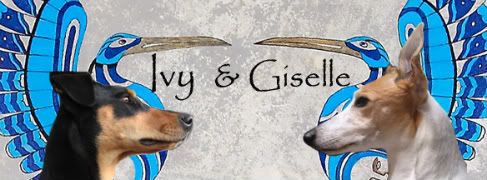Solving behavioral problems starts at the very source: something needs to change within the household to foster courage and confidence. Because your dog is visually impaired, you have to strengthen her other senses and practice little things that will help her gain confidence in you, your husband, and her own self.
It may sound trivial, but how is your dog's basic obedience? Knowing commands, having rules, and sticking to your rules helps communicate to the dog that you are a strong, stable leader and that she can confidently follow you. An excellent way to rightly assert your position is through NILIF (Nothing In Life Is Free): http://k9deb.com/nilif.htm. From now on, your dog has to earn everything - ESPECIALLY affection from your husband. If she wants your husband to pet her, she must sit. If she wants her dinner, she must lay down. etc. etc. It sounds strict to us, but dogs crave schedules. They love knowing what is expected of them and their confidence will grow as they realize that you have everything under control.
Additionally, she is just too attached to your husband. If your husband encourages that tight, desperate attachment, it will ultimately worsen your pup's "separation anxiety". If your hubby is doing anything that may coddle your pup or inadvertently reward her anxiety and clingyness, tell him to stop and start fitting NILIF into his routine instead. A happy dog is one who is confident and calm and certain of his/her position and expectations. You have to relay to your pup that she has no need to worry because you *will* come back. This can be accomplished through alone training. Here's a link on SA and alone training: http://www.wagntrain.com/SeparationAnx.htm. A good book is "I'll Be Home Soon" by Patricia McConnell.
Even though your pup is visually impaired, her senses of smell and hearing are especially strong and you can easily tweak the above training advice to fit your pup. It CAN be done, but it starts at Square 1 - change within the home.Good luck.







 Reply With Quote
Reply With Quote
Bookmarks